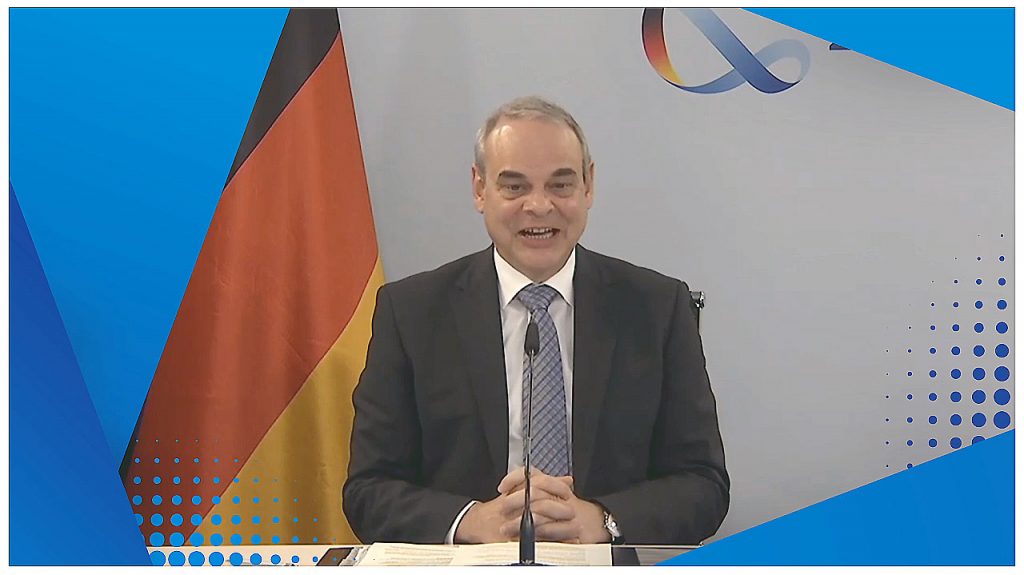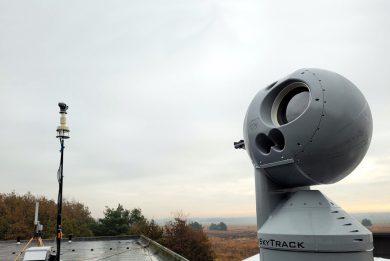
Presidency Statement – Benedikt Zimmer, State Secretary, Ministry of Defence, Germany
This semester it is the turn of Germany to chair the European Council; it was thus the German Defence State Secretary Benedikt Zimmer who gave the Presidency speech, replacing AnnegretKramp-Karrenbauer, the German Federal Minister of Defence, who could not take part in the meeting. According to Mr. Zimmer the pandemic provided two lessons learned, the need to improve the ability to provide support and assistance, and that of being capable to immediately manage unexpected crisis. He underlined the close cooperation between the EU and NATO, the PESCO project on the European Medical Command (EMC) having close ties with NATO’s Multinational Medical Coordination Centre (MMCC), Mr. Zimmer stated that “NATO remains the cornerstone of collective defence; for this reason we remain committed to strengthen the European pillar in NATO and actively search ways to consolidate the cooperation between the EU and the Alliance”. Enhancing the European resilience in the area of security and defence has been a primary goal of the German presidency, “We have been actively working towards consolidating and building the EU role as an anchor of stability with the ability to act as a global player in international crisis management.” Citing the EU Strategic Compass, initiative he considered it as the start of a process aimed at finding a much needed commonly agreed basis between EU members states on the four main issues, [crisis management missions, resilience, capabilities and instruments, working with partners], which will allow to plan better and act more decisively in the future.
He also highlighted the importance of PESCO, for which provisions for third party states participation have been finalised, “The participation of allies and close partners who are not part of PESCO is in everyone’s interest and will add significant value,” Mr. Zimmer said.
Substantiate EU ambitions with necessary funding is of course of paramount importance: “For the first time a financial title supporting Defence has been integrated into the EU budget through the European Defence Fund (EDF). We want to make sure we will finalise the EDF regulations as quickly as possible in order to start funding concrete projects for common and interoperable capabilities, thus helping to close European capability gaps,” the German Defence State Secretary said.
Improving strategic capability planning in the EU is also a must; this should take into account the overall picture of the European capability landscape, to ensure a more comprehensive planning and a more coordinate decision-making. “This should also include coordination of contributions, of EU Member States, ideally based on the future Strategic Compass,” Zimmer said.
Having the means to plan and conduct operations and missions effectively will allow the EU, according to the German representative, to become a full spectrum security provider.
Mr. Zimmer also stressed the importance of digitisation and cyber resilience, not only for the military but also for the Union as a whole, as improvements in those fields will be key in order to increase resilience towards a variety of challenges that might expect us in the future. He finally concluded underlining the need for an increased cooperation and coordination among Member States in the field of defence and security, as well with other patterns, first and foremost the Atlantic Alliance.



